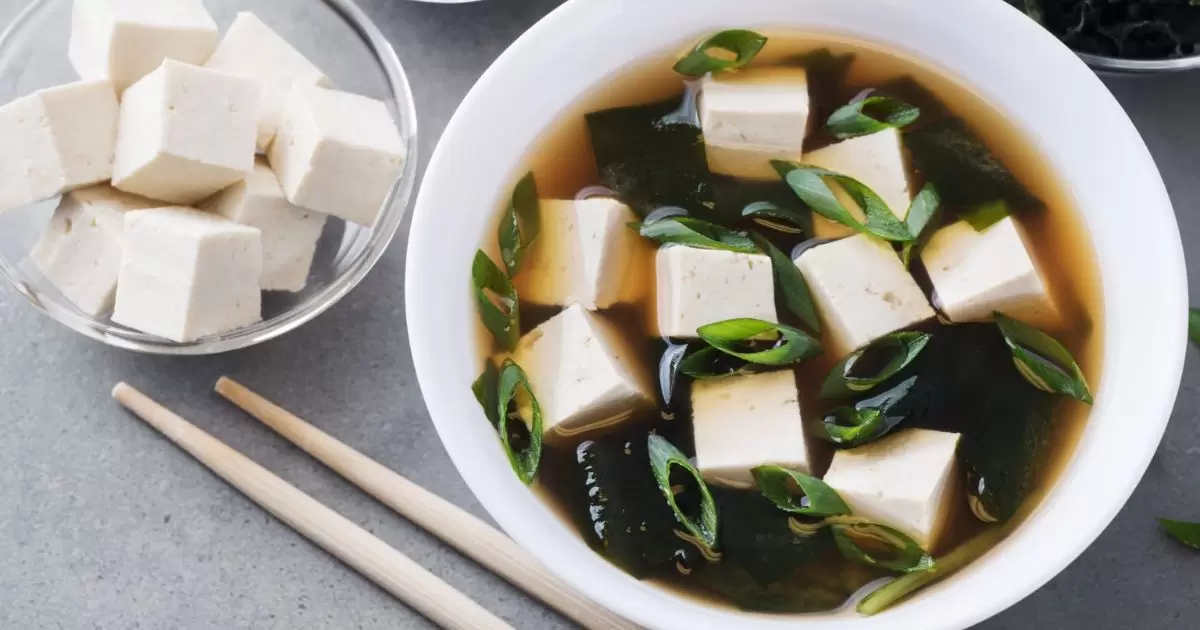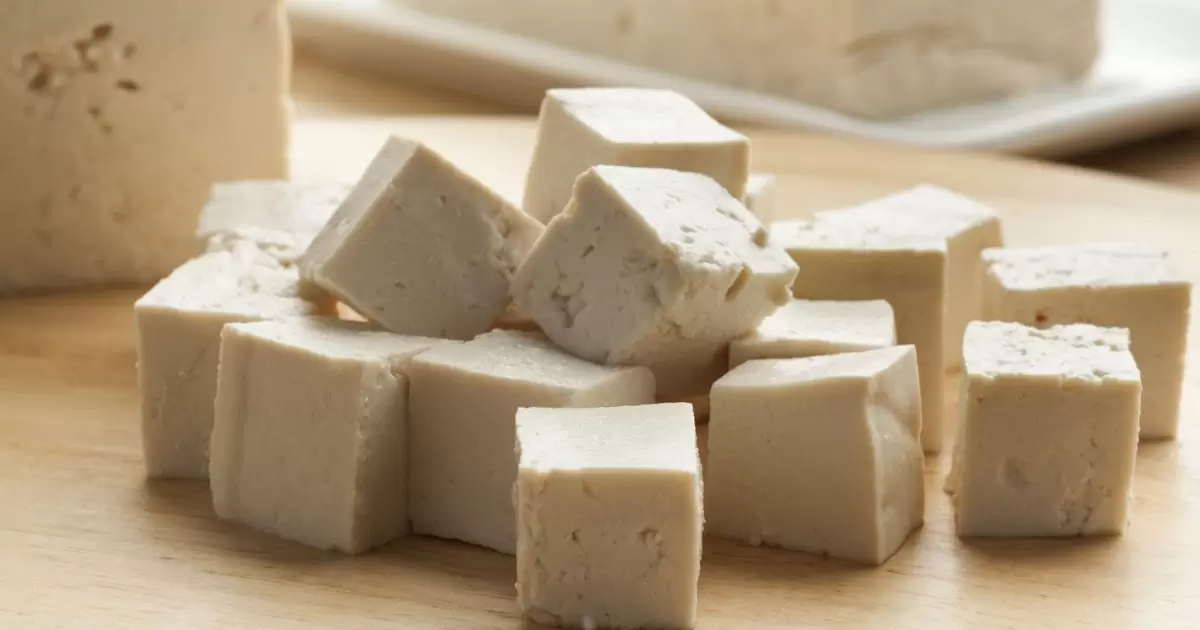Tofu halal refers to tofu that adheres to Islamic dietary laws. It means the tofu is made following the guidelines of halal food preparation, ensuring it’s permissible for consumption by Muslims. This involves using ingredients and methods that comply with Islamic principles, making the tofu acceptable and suitable for those following a halal diet.
Discover the delicious world of halal cuisine! Are you wondering, “Is tofu halal?” Dive into our guide to explore the savory delights of halal-certified tofu. Uncover a range of recipes and dishes that cater to your dietary preferences while savoring the goodness of tofu made in accordance with halal standards. Join us on this flavorful journey and explore the diverse and delectable options awaiting you
Yes, tofu can be halal if it’s prepared following Islamic dietary guidelines. Halal tofu is made using ingredients and processes that comply with Islamic law, ensuring it’s permissible for consumption by Muslims. Checking for halal certification or preparing tofu using halal ingredients makes it suitable for those following a halal diet.
Tofu Composition
Tofu, primarily crafted from soybeans, typically aligns with halal dietary guidelines due to its natural and straightforward production process. Its composition involves curdling soy milk and pressing the resulting curds into blocks, omitting any prohibited substances or methods in Islamic dietary laws. This basic preparation establishes tofu as generally permissible in halal consumption, stemming from its origins in permissible sources like soybeans.
The halal status of tofu might be influenced by additional components or flavorings present in certain commercially manufactured types. It’s essential for consumers to scrutinize labels for any non-halal additives, preservatives, or alcohol content that could potentially affect its permissibility. While the core ingredients of tofu support its alignment with halal principles, careful attention to supplementary elements remains crucial for ensuring compliance with Islamic dietary regulations.
Common Misconceptions

Misconceptions about the halal status of tofu often stem from a lack of understanding regarding its production and ingredients. One common myth is that tofu contains non-halal additives or is processed using prohibited substances. However, the basic tofu-making process involves curdling soy milk without incorporating any haram elements, making it generally permissible in Islamic dietary guidelines.
Another misconception is that all tofu varieties are automatically halal. While tofu itself is derived from halal sources, some commercially produced types may include additives or flavorings that render them non-compliant with halal standards. Is rice wine halal Similarly, certain types of rice wine might contain alcohol, which is considered non-permissible in Islamic dietary laws, raising concerns about its halal status. It’s crucial for individuals adhering to halal guidelines to carefully inspect labels and ingredients, ensuring that products like rice wine align with their dietary preferences and religious beliefs.
Is kimchi halal It’s crucial for consumers to scrutinize labels and confirm that the tofu they choose doesn’t contain any non-permissible ingredients, ensuring they adhere to halal dietary principles. When searching for Halal Tofu recipes selecting certified halal tofu guarantees alignment with religious guidelines, providing peace of mind while preparing delicious, halal-compliant meals.
Halal Certifications for Tofu
Halal certifications for tofu offer assurance to consumers regarding its compliance with Islamic dietary laws. These certifications involve thorough inspections by certifying bodies to ensure that the entire tofu production process, from sourcing raw materials to manufacturing, adheres strictly to halal standards.
These certifications verify that no non-halal ingredients or processes are involved in making tofu, giving confidence to Muslim consumers that the product meets the requirements for consumption within the bounds of Islamic dietary guidelines. Such certifications serve as a reliable marker, simplifying the selection process for individuals seeking to uphold their religious dietary principles when purchasing tofu products.
Halal Alternatives to Tofu
When seeking halal alternatives to tofu, several options fit the bill. Paneer, a fresh cheese common in South Asian cuisine, stands out as a halal-friendly substitute. Made from milk and lemon juice or vinegar, paneer offers a similar texture and versatility in various dishes.
Tempeh, originating from fermented soybeans, is another halal alternative to tofu. This Indonesian staple contains whole soybeans, making it a favorable choice for those looking for a protein-rich substitute. Its firm texture and nutty flavor make tempeh a compelling option in diverse recipes while aligning with halal dietary guidelines.
Cultural and Regional Perspectives

Cultural and regional perspectives greatly influence the perception of whether tofu is considered halal. In many East Asian countries where tofu has its origins, it’s commonly accepted as halal due to its simple ingredients and production process. However, in regions where the concept of halal is strictly tied to specific religious guidelines, there might be varying opinions or interpretations regarding the permissibility of tofu.
Furthermore, cultural nuances play a significant role in how tofu is perceived in different regions. In some cultures, tofu is a staple food deeply embedded in local cuisine, often considered inherently permissible. Yet, in other regions, there might be more scrutiny over the manufacturing process or potential additives, impacting the halal status of tofu.
Tofu in Islamic Dietary Practices
| Aspect | Tofu in Islamic Dietary Practices – Halal Consideration |
| Origin & Ingredients | Typically sourced from permissible soybeans, considered halal due to natural derivation. |
| Production Process | Generally accepted as halal due to a straightforward method involving curdling soy milk without non-permissible substances. |
| Cultural & Regional Influence | Varies based on cultural acceptance and regional interpretations of halal guidelines. In some regions, tofu is widely considered permissible due to its culinary integration; in others, there might be differing opinions based on stringent interpretations of halal. |
| Scrutiny over Additives | Awareness required regarding any additives or flavorings in commercially prepared tofu that might impact its halal status. Checking labels for non-halal substances or alcohol content is advisable. |
| Conclusion | While fundamental tofu production aligns with halal principles, variations exist based on cultural, regional, and ingredient-related considerations, necessitating diligence in ensuring adherence to halal dietary laws. |
Practical Tips for Consumers
- Label Scrutiny: Check product labels for halal certification or indications. Look for trustworthy certification symbols or labels from recognized halal certification bodies, ensuring that the tofu meets halal standards.
- Ingredient Awareness: Be mindful of additional ingredients or flavorings. Opt for tofu with minimal additives and steer clear of those containing non-halal elements such as alcohol or non-permissible flavor enhancers.
- Research Brands: Explore and research different tofu brands known for their adherence to halal practices. Online reviews or recommendations from halal-focused communities can guide you toward trusted options.
- Consultation with Scholars: If uncertain, seek guidance from knowledgeable individuals, such as religious scholars or experts well-versed in halal dietary guidelines. They can provide clarity on specific concerns about tofu’s halal status.
- Cultural Context: Understand the cultural context and regional perspectives. Recognize that opinions about the halal status of tofu might vary across different cultures and regions, allowing for a broader understanding of its acceptance within various communities.
Global Tofu Brands and Halal Assurance
Global Tofu Brands are renowned for their diverse offerings, catering to various tastes and dietary preferences worldwide. These brands prioritize quality, flavor, and accessibility, ensuring that tofu lovers everywhere have access to a wide range of products, from traditional firm tofu to innovative flavored varieties.
Halal Assurance Tofu stands out among these global brands by adhering to strict halal standards in its production process. This ensures that the tofu is prepared in accordance with Islamic dietary laws, meeting the needs of consumers seeking halal-certified options. With its commitment to quality and compliance, Is Tofu Permissible Halal Assurance Tofu offers a trusted choice for individuals looking for halal-certified tofu products, providing both assurance and delicious taste.
Community Perspectives
Tofu is a versatile ingredient cherished by many, and ensuring its halal status is vital for numerous communities. Community perspectives on halal tofu vary; some view it as an excellent plant-based protein source fitting within halal guidelines, while others seek specific certifications or assurance from trusted sources.
For many, the halal aspect of tofu aligns with their dietary needs and cultural beliefs, providing a meat-free alternative that meets religious requirements. However, differing interpretations within diverse communities highlight the importance of clear labeling and certification to accommodate varying perspectives and ensure inclusivity for all who seek halal-compliant food options.
Halal Tofu Recipes
Halal tofu recipes offer a delicious fusion of flavors, blending the versatility of tofu with halal ingredients. From aromatic curries to zesty stir-fries, these recipes cater to diverse palates while adhering to halal dietary principles. Tofu, a protein-rich staple, absorbs spices and marinades, creating savory dishes that are both wholesome and fulfilling.
With tofu prepared in accordance with halal guidelines, these recipes open up a world of culinary possibilities. Whether it’s marinated tofu skewers on the grill or tofu simmered in a fragrant halal broth, these dishes showcase the adaptability of halal cooking while celebrating the goodness of tofu.
Is tofu vegan
Is tofu vegan is a common question, and the answer is yes! Tofu, crafted from soybeans, is a plant-based protein staple cherished by vegans worldwide. Its versatile nature allows for a myriad of culinary creations, from creamy desserts to savory main courses, making it a beloved ingredient in vegan cooking.
Being entirely plant-derived, tofu aligns seamlessly with vegan dietary principles, offering a nutrient-rich alternative to animal-based proteins. Its ability to absorb flavors and textures makes it a go-to for vegan chefs, showcasing that plant-based eating can be both delicious and nourishing.
Frequently Asked Question
What makes tofu halal?
Tofu becomes halal when it’s made using ingredients permissible in Islam and processed in accordance with Islamic guidelines, avoiding any non-halal elements.
Can I assume all tofu is halal?
It’s safer not to assume. While tofu is generally vegetarian, some varieties might contain non-halal additives or be processed in a way that doesn’t meet halal standards.
How can I identify halal tofu?
Look for halal certification labels on tofu packaging or verify the ingredients used. Some brands explicitly mention their compliance with halal standards.
Can I make tofu halal at home?
Yes, by using halal-certified ingredients and ensuring the cooking process aligns with Islamic dietary laws, you can prepare halal tofu at home.
Conclusion
The question of whether tofu is halal revolves around its production and ingredients. Tofu, made from soybeans, is generally considered halal as it originates from permissible sources. The process of making tofu involves curdling soy milk and pressing the curds into blocks, a method that doesn’t involve any prohibited substances or practices in Islamic dietary laws. Therefore, the consensus among scholars leans towards considering tofu as halal, given its natural and straightforward preparation without involving non-permissible elements.
It’s crucial to note that the halal status of tofu might vary based on additives or flavorings used in certain commercially prepared varieties. Consumers should exercise caution, checking labels for any non-halal additives or alcohol content that might affect its permissibility. In essence, while the fundamental nature of tofu aligns with halal dietary guidelines, diligence in examining ingredients remains essential to ensure adherence to Islamic dietary laws.










